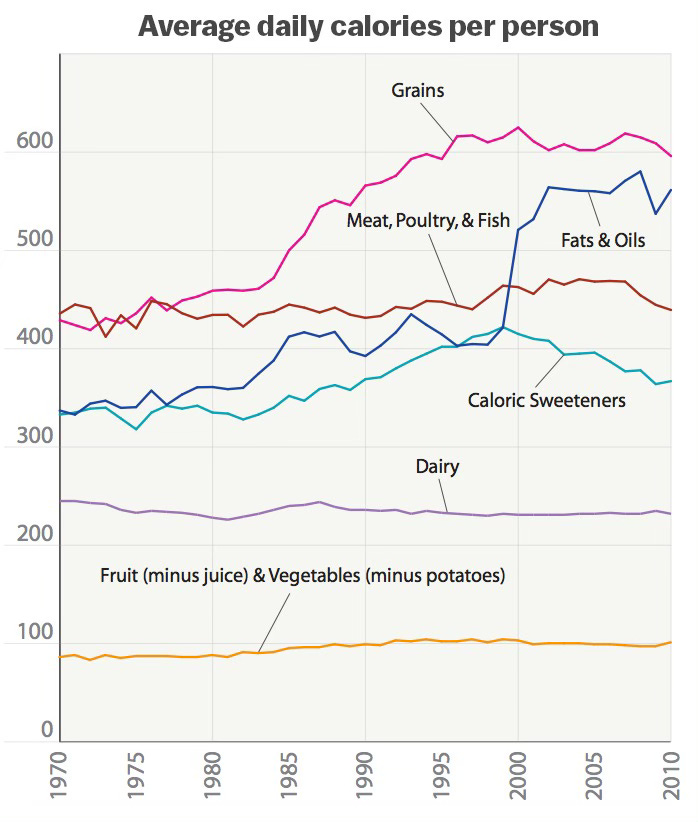Traumatic VS Chronic Medical Care
The Subconscious Fat of Each

Mr. Skeptical says, “I don’t get it. Why are you comparing?“
“Well, let’s first ensure we are discussing the same thing. Traumatic care means medical services that will help one survive a trauma, like a bad car accident or getting severely burned. Chronic care would mean having a disease or condition like irritable bowel syndrome, AIDS, or cancer.”
“They are different types of care. Why are you comparing them.”
“I’m comparing them because the average person assumes that if medical care is good in one area, it’ll be good in the other, but that logic is flawed. There’s a lot of Subconscious Fat to uncover here.”
Subconscious Fat at 30,000 feet
Medical care in the modern world is excellent when it comes to trauma. If I’m in a car accident and lose a limb, I want to be rushed to the hospital. Doctors and nurses will do their best to save my life in that situation. I’d likely be given medication that would ease my pain. That will be a great relief for me and most people when physically damaged. The right drug to help alleviate severe pain can be fantastic.
Mr. Skeptical shakes his head. He says, “But there’s a big but coming up, right?”
“Well, just because medicine is good for traumatic physical injury doesn’t mean medicine is always best for chronic injury or disease. When a human is in severe pain, any medication to ease pain is fantastic. However, medicine alters the chemical nature of the human body, and there’s always a price to pay, even in a traumatic injury.”
“But didn’t you just say how the right drug can be a great relief?”
“Yes, but suppose you twist an ankle. Medication may take the pain away. Nevertheless, a foolish person might decide to walk on the injured ankle and turn a minor strain into a lifelong achy ankle. Despite getting rid of the pain, the body’s innate intelligence still needs time to heal. There’s always a price to pay, even with pain medication.”
“Well, that’s where a doctor or nurse would suggest to the patient not to walk on the ankle for a few days.”
“I agree, and that’s all fine and good. And I’d listen to what my doctor tells me to do when it comes to recovering from trauma. But if I have a chronic health issue, I’ll listen to what my doctor says, yet I may not follow it.”
Subconscious Fat at 10,000 feet
It’s as if an excellent real estate salesman sold me a house. The real estate salesman offered good service by selling me the value and accommodations of the house. They came across as an expert in the real estate market.
However, I wouldn’t go to them for advice on buying stocks. Yes, stocks are another form of investment, like real estate, but they’re still different. Expertise in one area doesn’t transfer to another. Just because medicine is good at saving lives after an acute injury doesn’t mean it’s good at helping people get rid of chronic diseases.
“Yeah, but then, who do you go to if you have a chronic disease?”
“You look at all the options, even the crazy ones. After a physical trauma, it’s understood that you’ll be taking the medication for a little while, not forever. However, in a chronic condition, often the advice is to take the medicine for life. That’s way more serious.
If you have high cholesterol, then you need a statin drug for life.
If you have diabetes, then you need to be on insulin for life.
Subconscious Fat at Eye-Level
Medical care is not about prevention at all. Medical doctors get less than twelve hours of nutrition education in four years of medical school. Nevertheless, they sure learn how to inject a patient with an insulin shot really well. Many cases of diabetes can be reversed and have been, despite medicine saying for years that it’s not. See video below.
Is it any wonder that diabetes and obesity continue to rise when medical doctors learn so little about nutrition in medical school? Look at the chart below.
Grains and vegetable oils have been on the rise more than any other foods. This graph correlates with the rise in diabetes and obesity in the US.
'All Disease Begins in The Gut.' – Hippocrates
Practical Suggestions and Conclusions
Mr. Skeptical gets up, pointing at me. “You just love to bash medicine. It comes from when you were a chiropractor. You guys love to talk shit about medicine.”
“Not true, well maybe a little. I’m just advocating for individuals to take healthcare into their own hands. Don’t rely 100% on what a medical doctor says, especially if it’s a chronic condition.”
“You’re still way biased against medicine.”
“I’m not. But I’ll admit I’m biased for independent thinking. I do believe ultimately pharmaceutical companies control much of what is taught in medical school. Yet, if I had something like pancreatic cancer, the same type that Steve Jobs had. I’d gotten the surgery right away. Some chronic conditions will respond best to standard medical care, but not everything.”
Take responsibility for your own health. Do your own research.
And be aware that your beliefs have consequences.
PS Full disclosure: Chat GPT was used to research and enhance this post.
PSS For those in the Miami area: See the next MeatUP and Resistance Band Training Meet-ups here and here.



There was a physician who made a good analogy. He said that treating diabetes with insulin is like treating alcoholism with gin.